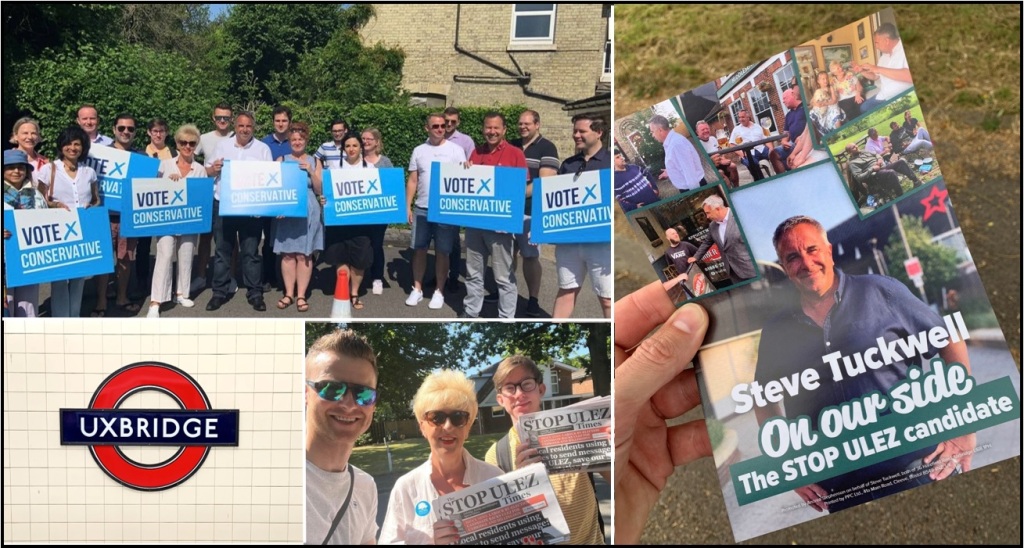Over the past few months I have joined with hundreds of other campaigners to support Steve Tuckwell’s campaign to become the MP for Uxbridge and South Ruislip. Like London busses, we had three by-elections at once thanks to the resignation of three sitting MPs. Being the closest to home, I focused on Uxbridge spending many weekends pounding the streets, delivering literature, and speaking to voters about the things they care about.
It’s not often that a single issue dominates an election but in Uxbridge there was only one thing people wanted to talk about: ULEZ. Or more specifically, the expansion of the Ultra Low Emission Zone into Outer London that would require residents to pay a daily £12.50 tax if their car or van doesn’t meet the emissions requirements.
Many people felt a deep sense of unfairness about the scheme saying they rely on their car for normal everyday activities like going shopping, taking the children to school, and driving to work. Therefore, imposing it in Outer London where public transport links are less reliable than in central London and where car ownership is seen by many as an essential, is a very unpopular decision from Labour Mayor Sadiq Khan.
Which is why Steve’s campaign focused on this, urging voters to send an anti-ULEZ message to the Mayor at the ballot box. And it worked! I’m delighted to say that Steve won the by-election (by a narrow 495 votes) and is now the newly minted MP for Uxbridge and South Ruislip.
It was a brilliantly fought campaign that I loved being part of. Steve will be a superb MP and I look forward to seeing him returned to Parliament at the next General Election too.



 And so, while one-third of the world’s population do not benefit from the right to self determination, many of those who do seem to take it for granted. In the UK a huge number of the electorate has disengaged with the electoral process. At the last general election in May 2010, voter turn-out was 65% meaning that over one-third of eligible voters were so unmoved by the choices before them they opted to stay at home instead of exercising their right to choose who governs them.
And so, while one-third of the world’s population do not benefit from the right to self determination, many of those who do seem to take it for granted. In the UK a huge number of the electorate has disengaged with the electoral process. At the last general election in May 2010, voter turn-out was 65% meaning that over one-third of eligible voters were so unmoved by the choices before them they opted to stay at home instead of exercising their right to choose who governs them.